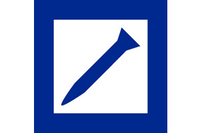Nuclear weapons
| Languages |
[[::Nuclear weapons|English]] • [[::Nuclear weapons/cz|Czech]] • [[::Nuclear weapons/fi|Finnish]] • [[::Nuclear weapons/fr|French]] • [[::Nuclear weapons/de|German]] • [[::Nuclear weapons/li|Lithuanian]] • [[::Nuclear weapons/ru|Russian]] |
Please help to support more languages for this page! |


Study on banks involved in the financing of nuclear weapons
On October 10th, 2013 a study b< ICAN und IKV pax christi[1] has been published listing 298 financial service providers from 30 countries that support 27 companys that develop, produce or maintain nuclear warheads, including rockets, bombers, submarines, electronic hardware and software on the scale of 235 billion Euro ($ 314 bn).[2]
Deutsche Bank, Commerzbank, Allianz, Unicredit (including HypoVereinsbank) and publicly owned banks (BayernLB, Helaba, KfW) place germany on 4th place after USA, UK and France. On the list of receivers are also german companies like EADS and ThyssenKrupp that deliver nuclear enabled submarines to Israel. The medical peace organization IPPNW, one of the founding members of ICAN, partner campaign of atomwaffenfrei jetzt!, claims a contract for a total stop of nuclear weapons.
The german government denies join a declaration by 124 countries[3] against the use of nuclear weapons "under no circumstances" as it is in violation of the principles of the NATO military treaty as they justify.
Nuclear sharing
![]() Wikipedia has more info on this topic.
Wikipedia has more info on this topic.
Nuclear sharing is a concept in NATO's policy of nuclear deterrence, which involves member countries without nuclear weapons of their own in the planning for the use of nuclear weapons by NATO, and in particular provides for the armed forces of these countries to be involved in delivering these weapons in the event of their use.
As part of nuclear sharing, the participating countries carry out consultations and take common decisions on nuclear weapons policy, maintain technical equipment required for the use of nuclear weapons (including warplanes capable of delivering them), and store nuclear weapons on their territory. In case of risk of war the NPT treaty would cease , the sharing would end and the management of the nukes would pass totally below the hosting states.[4]
The latest NATO strategy paper[5] on reducing nuclear weapons does not mention this path claimed by german foreign minister Guido Westerwelle who called nuclear weapons a "relic of the Cold War" and said they "no longer have a military purpose.".
See also
References
- ↑ http://www.atomwaffenfrei.de/home/artikel/de122974bf16cb2e06c56cc61280ec71/das-geschaeft-mit-der-massenvernichtung.html
- ↑ english PDF, german summary
- ↑ http://www.icanw.org/campaign-news/124-states-condemn-unacceptable-effects-of-nuclear-weapons-very-survival-of-humanity-depends-on-nuclear-weapons-never-being-used
- ↑ http://www.opanal.org/Articles/cancun/can-Donnelly.htm
- ↑ http://www.spiegel.de/international/germany/nato-strategy-paper-nuclear-weapons-likely-to-stay-in-germany-a-722435.html

